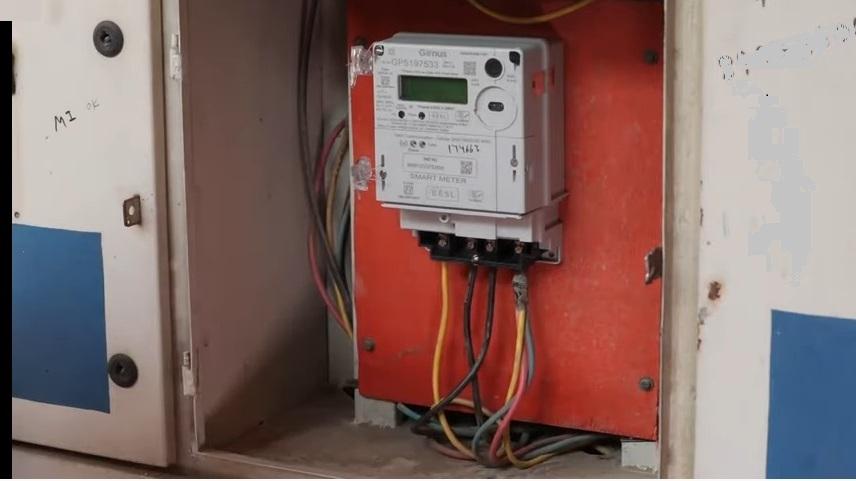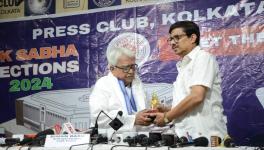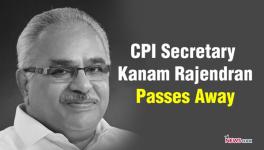West Bengal: Smart Meter Installation Sparks Protests as WBSEDCL Initiates Phase 1 Implementation

Image for representational purpose. Credit: T&D India
Kolkata: West Bengal State Electricity Distribution Company Limited (WBSEDCL) has initiated the implementation of a smart metering programme in phases. In Phase 1 of the programme, approximately 2,50,000 smart meters will be installed. This includes consumers with a connected load between 5 to 50 KVA in the ‘Industrial & Commercial’ category and all government consumers with a connected load below 50 KVA.
The decision to install smart meters has raised concerns among small business owners and lower-income group consumers in West Bengal. Several organisations, including CITU and farmers' organisations in the state, have taken to the streets to protest the move.
Despite protests across the state, WBSEDCL has proceeded with the installation of smart meters for commercial consumers and in government offices.
The connections typically fall under these five categories: Government, Industrial, Commercial, Agricultural, and Domestic. Following the initial phases, smart meters will be installed for domestic and agricultural connections.
The WBSEDCL's website claims, "WBSEDCL provides quality power to a gargantuan customer base of more than 2.03 crore across West Bengal through its service network spanning 5 Zones, 20 Regional Offices, 76 Distribution Divisions, and 534 Customer Care Centers."
The task of supplying and installing the new smart meters has been assigned to a company named Iskraemeco India Private Limited. The agency is responsible for financing and implementing the entire smart metering project. The private agency is accountable for the supply, delivery, installation, commissioning, and operation of smart metering phases. According to the agreement, WBSEDCL will pay the Monthly Reading Charge to the agency based on actual operational meter months on a monthly basis in accordance with the terms and conditions of the contract with WBSEDCL.
The leaders of the West Bengal State Electricity Workmen's Union have warned that after the installation of prepaid smart meters, the burden will fall on consumers, and private companies may also enter the field of electricity distribution, jeopardising WBSEDCL jobs.
The smart meter system will eliminate the cross-subsidy system in electricity, where citizens with lower consumption pay less, and those who use more units pay more per unit. With smart meters, everyone will have to pay the same price for electricity, potentially burdening poor consumers.
Ashok Mondal, a small factory owner in Lalgola, Murshidabad, expressed concerns that the smart meter system will further burden their businesses. “After having suffered losses through demonetisation, GST, and COVID, we are worried this will bring more losses. But our concerns are being ignored,” he said.
After the smart meters are installed, consumers will have to pay about Rs 10 monthly as a meter charge, but the operational expenditure of prepaid smart meters is about Rs 100, which is ten times the current price.
In Murshidabad district alone, more than 18,000 meters will be replaced with smart meters. Initially, the smart meters are being installed in post-paid mode, but with a single click, they can be converted to pre-paid mode, according to an expert from WBSEDCL. Activists from the West Bengal State Electricity Workmen's Union are also concerned about the decision to install prepaid smart meters.
Interestingly, the Government of India has stopped all financial grants for the installation of smart meters under the RDSS project and the mandatory imposition of the prepaid system. The total expenditure of the RDSS scheme is Rs 3,03,758 crore, with a central grant of Rs 97,631 crore.
The government of India has been accused of moving ahead to weaken the discoms and push harmful clauses of the Electricity Bill, 2022, for privatisation, as opined by Prasanta Nandi Choudhury, the general secretary of the Electricity Employees Federation of India (EEFI). He further added that under the RDSS project, each smart meter will cost Rs 7,000 to Rs 8,000, with a maximum life of seven to eight years. Therefore, smart meters need to be replaced every eight years, which will burden consumers but benefit manufacturing companies.
He explained, “For example, considering India's 26 crore consumers, the cost of the meters will be Rs 2,08,000 crore, which will be borne directly by the public, and half of this cost can be used for upgrading the entire distribution system's infrastructure. This scheme seems to have nothing to do with network development. The main objective of installing smart meters is to collect money in advance for the ease of doing business for private companies. The present design of the smart meters includes the TOTEX model and OPEX model, covering the price of the meter, head-end system, meter, data management, communication system, cloud storage, charges for software tests, cyber security, and operation and maintenance charges for 93 months. It is truly surprising that all these different spheres have paved the way for a lucrative business for private players, leaving the fate of common people in their hands.”
According to experts, another concerning aspect is the introduction of the Time of Day (ToD) concept and tariff rationalisation for smart meters by amending the Electricity (Right of the Consumers) Rules 2020. Under the ToD tariff system, during solar hours (eight hours a day as specified by SERC), the tariff will be 10% to 20% lower than the normal tariff, while during peak hours, the tariff will be 10% to 20% higher, applicable immediately after the installation of smart meters, no later than April 1, 2025. This implies that when power consumption is unavoidably high at night, the tariff will be higher, potentially penalising consumers for using electricity when they genuinely need it as a basic need and right.
Sudip Datta, the national secretary of CITU, who has authored several articles on the smart meters issue, told NewsClick that this is a “clear attack on consumers and discoms and goes against the federal structure of the Indian constitution”.
“This is why several governments, like the government of Kerala, have already opposed the move for prepaid smart meters and the ToD tariff. Electricity employees, consumers, and farmers from different states have already taken to the streets to protest against these anti-people measures,” he said.
Interestingly, on Friday, the installation of smart meters was attempted at the South 24 Parganas district office of CPI(M) in Baruipur but was stopped by the Party. "Under no circumstances will we bow down to the diktats of the Modi and the Didi (Mamata Banerjee) government on this issue," said Shamik Lahiri, CPI(M) district secretary for the South Parganas district, speaking with NewsClick.
Get the latest reports & analysis with people's perspective on Protests, movements & deep analytical videos, discussions of the current affairs in your Telegram app. Subscribe to NewsClick's Telegram channel & get Real-Time updates on stories, as they get published on our website.
























